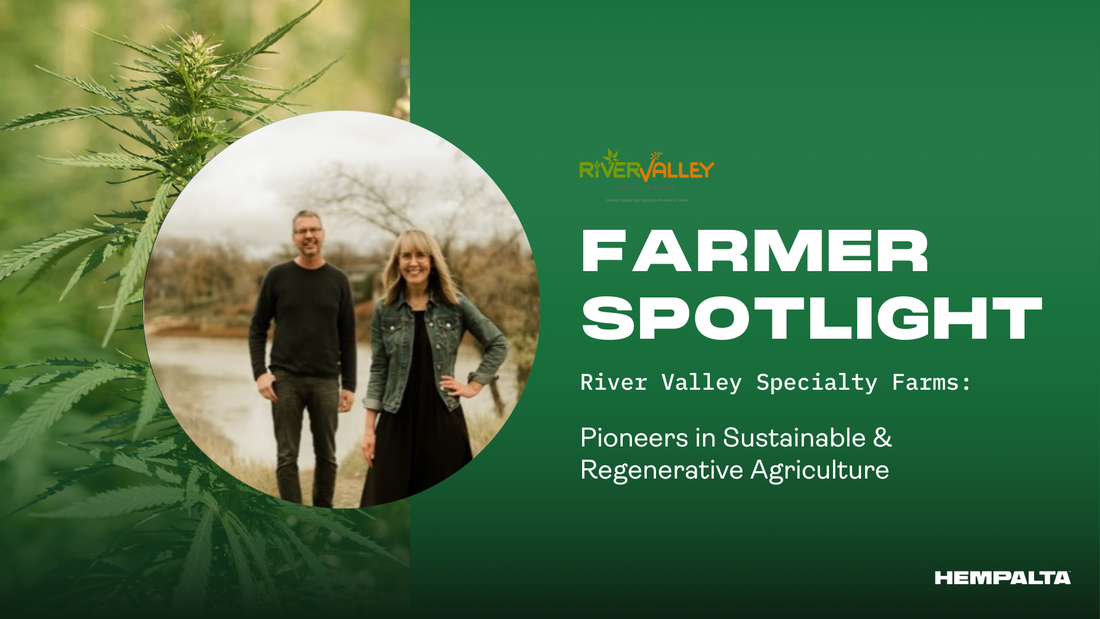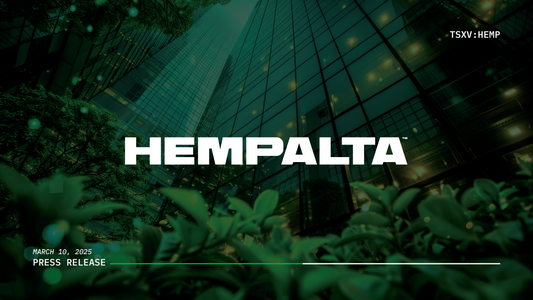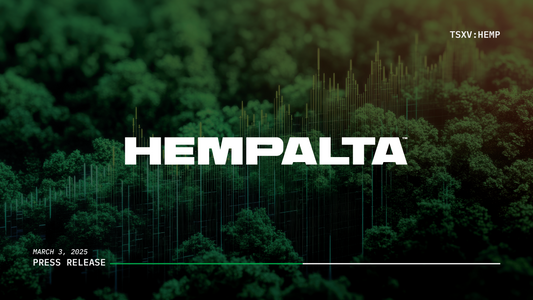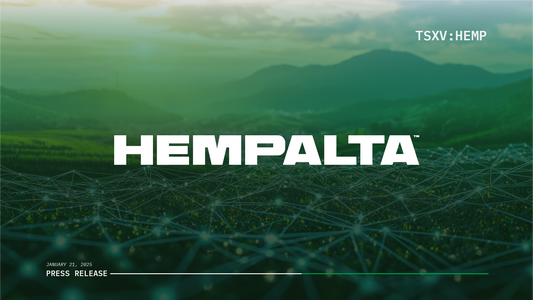
River Valley Specialty Farms: Pioneers in Sustainable and Regenerative Agriculture
Share
River Valley Specialty Farms (RVSF) is a second-generation family farm located in the heart of Manitoba on the Canadian Prairies. This integrated farm and processor of hemp seeds, both organic and non-organic, is renowned for its commitment to sustainability and regenerative farming practices. Owned and managed by the dedicated sibling duo, James Kuhl (COO) and Kristen Gray (CAO), RVSF stands as a beacon of innovation in the agricultural industry.
James Kuhl, the Chief Operating Officer, brings over 25 years of experience in agronomy, holding an Agriculture Diploma. His expertise in protocol design and analysis is a cornerstone of RVSF's operations. Kristen Gray, the Chief Administrative Officer, has an 18-year background in agronomy and holds a Bachelor's degree. Together, they lead a strong support team with in-house expertise in all farming and food processing aspects.

RVSF thrives in the continental climate of Manitoba, experiencing warm summers and cold winters, with reliable year-round moisture from rain and snow. This climate is ideal for cultivating specialty crops like hemp, which are well-suited to the region's soil types and growing conditions.
Their Farming Practices
RVSF practices regenerative farming, an approach that contrasts sharply with conventional methods. Regenerative organic farming minimizes tillage, eliminates chemical inputs, and reduces soil disturbance. This method relies heavily on natural processes for weed control and yield performance, presenting unique challenges but offering significant environmental benefits.
Why Hemp?
Hemp is a versatile and sustainable crop that grows 40 times faster than trees and uses three times less water than cotton. It is a powerful carbon sink, capturing more CO2 than any other commercial crop, with estimates ranging from 8-15 tonnes of CO2 per hectare cultivated. Additionally, hemp serves as an alternative protein source, complementing the global demand for meat and other proteins.

Farming and Crop Production
The typical growing season at RVSF spans from May to early October, encompassing seeding, germination, care, irrigation, maturity, harvest, seed handling, and cleaning. The farm is determined to increase its organic acreage and strengthen its organic farming model. Harvested hemp seeds are stored in designated bins on the farm, awaiting year-round processing.
Processing
RVSF's processing plant and warehouses are located on the farm property, where automation ensures quality and efficiency. The Gentle Processing™ method guarantees a 5-log reduction, making the products suitable for Ready-To-Eat (RTE) food formulations. The farm's food safety program is PrimusGFS audited and HACCP compliant, ensuring the highest standards are maintained.

Their Commitment to Sustainability
RVSF's dedication to regenerative farming goes beyond practice; it's a mission to educate and lead the industry. By experimenting with and perfecting regenerative methods, RVSF aims to close the knowledge gap in sustainable farming. Their efforts are not just about maintaining yields but improving the environment through responsible stewardship.
In partnership with Hempalta and Hemp Carbon Standard (HCS), RVSF is contracting significant acres to monitor, report, and verify the carbon capture of growing hemp. This collaboration not only helps validate the environmental benefits of hemp cultivation but also sets a benchmark for carbon capture and sustainability in the agricultural sector.
River Valley Specialty Farms exemplifies the future of sustainable agriculture. With a strong foundation in regenerative farming, a commitment to environmental stewardship, and a focus on high-quality, traceable hemp products, RVSF is well-positioned to meet the needs of the market and contribute to a more sustainable world.



